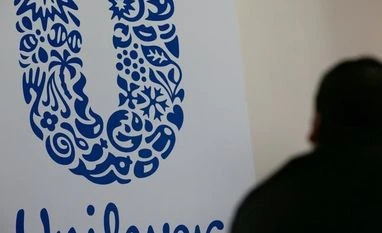Unilever warned of a big hit to profit margins this year as it struggles to pass on higher costs to consumers, and ruled out major acquisitions after investor criticism of its failed pursuit of GlaxoSmithKline's consumer health business.
Consumer goods companies are grappling with a surge in raw material, energy, transport and labour costs. Unilever is particularly exposed because of its reliance on emerging markets and food - where inflation is especially high.
The maker of Dove soap and Ben and Jerry's ice cream has recently lagged sales and profitability at rivals such as Procter & Gamble and Nestle, raising questions among some investors when it made a surprise 50 billion pound ($68 billion) bid for GlaxoSmithKline consumer health arm last month.
Unilever said on Thursday it had listened to those concerns and ruled out major deals, but sparked fresh anxiety by forecasting a big fall in profitability this year.
While predicting strong growth in sales as it raises prices, the company flagged a drop in underlying operating margin of 140-240 basis points, following a 10 basis point fall in 2021.
Finance chief Graeme Pitkethly said it faced a 2 billion euros-plus ($2.3 billion) hit from inflation in the first half of 2022, falling to about 1.5 billion euros in the second half.
Unilever said it expected margins to be "restored after 2022, with the bulk coming back in 2023 and the rest in 2024." But Bernstein analyst Bruno Monteyne was surprised by the scale of the forecast decline.
"Is this the major margin reset we have argued for? Or does it only cover the commodity costs? If it is all about covering the higher commodity costs, what happened to pricing power?" he said.
"If there really is so little pricing power, what does that say about the long term future?"
Unilever's shares were down 3% in morning trade. The company said the fall in margins was also due to investments in advertising, R&D and operational capital expenditure.
Talks With Investors
"We have engaged extensively with our shareholders in recent weeks and received a strong message that the evolution of our portfolio needs to be measured," Chief Executive Alan Jope said.
As it ruled out major deals for the foreseeable future, the Hellmann's mayonnaise to Sunsilk shampoo firm said it would buy back up to 3 billion euros of shares over the next two years.
"The buyback reassures that they are committed to shareholder returns but, on the negative side, they see fewer investment opportunities within their own business," said Waverton Investment Management's Tineke Frikkee, whose fund invests in Unilever.
"The pressure on Jope and the board is already quite high," she added.
Shortly after the spurned approach to GSK, it was reported that activist investor Nelson Peltz's Trian Partners had built a stake in Unilever. Trian has not commented on the reports.
In late January, Unilever announced a business revamp to focus on five product areas and 1,500 management job cuts.
"The 3 billion euro buyback isn't that big. The proceeds for selling their tea business were 4.5 billion euros, so they're not even giving back the full proceeds from that money coming in," Barclays analyst Warren Ackerman said.
"But, certainly, I think the signal is the right one, and they have listened to shareholders on the acquisitions." Jope said the company remained "absolutely resolved" to move its portfolio towards the beauty, health and well-being product categories. "But I would say we're more patient on how we get there. Bolt-ons remain part of the strategy," he told analysts.
Unilever reported a 4.9% rise in fourth-quarter underlying sales, driven by a sharp increase in prices. That beat analysts' mean forecast for 3.8% growth in a company poll.
For the whole of 2021, underlying sales growth was 4.5%, the strongest for nine years, with 2.9% from higher prices. The company forecast growth of 4.5-6.5% this year.
Unlock 30+ premium stories daily hand-picked by our editors, across devices on browser and app.
Pick your 5 favourite companies, get a daily email with all news updates on them.
Full access to our intuitive epaper - clip, save, share articles from any device; newspaper archives from 2006.
Preferential invites to Business Standard events.
Curated newsletters on markets, personal finance, policy & politics, start-ups, technology, and more.
)